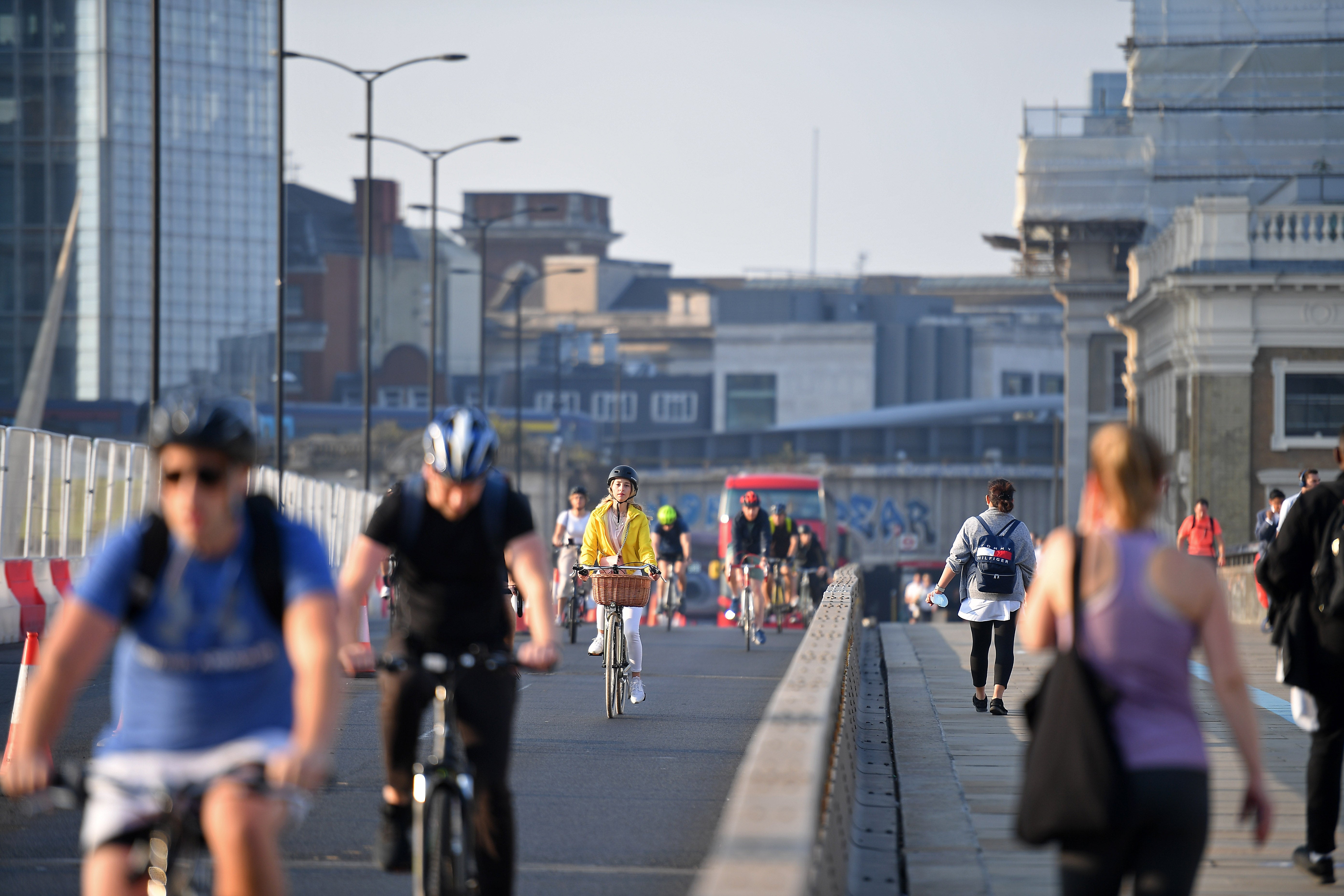Electric cars not enough as walking and cycling revolution needed, report finds
The UK government’s current approach to reach net-zero emissions could result in a 28 per cent increase in car use by 2050

The UK’s current approach to decarbonising transport through focusing on low emission and electric vehicles is not enough, the Institute for Public Policy Research (IPPR) says.
Instead, the government must focus on revolutionising city centres with walking, cycling and public transport infrastructure.
In a new report, the think tank finds that the government’s current approach to reach net-zero emissions could actually result in a 28 per cent increase in car use by 2050, with 10 million more cars on the road. This would also lead to an 11 per cent rise in car traffic.
If too much emphasis is placed on electric vehicles, the think tank says, the policy is likely to disproportionately benefit the wealthy. Currently, over 90 per cent of the highest earning households own at least one car, with 20 per cent owning three or more vehicles. But only a third of households in the lowest income decile own a single vehicle.
The report argues that to have the most significant impact whilst being fair to all, the government’s upcoming plan for decarbonising the transport sector must focus on improving everyone’s quality of life, not just those who are car owners. It can do this by focusing on an improved public transport system, walking, and cycling infrastructure.
Luke Murphy, head of the IPPR Environmental Justice Commission said: “The government’s current preferred strategy places an overwhelming focus on the shift to electric vehicles.
“While superficially attractive because of its offer of continuity, such an approach will not deliver for people or planet.
“We need to massively expand the provision of and affordability of clean public transport options, such as trains, buses and trams, while helping more people to regularly walk and cycle, alongside a shift to electric vehicles for those who need them.”
The think tank’s report contains a series of recommendations on how to achieve a future with more affordable clean transport options that simultaneously benefits health, wellbeing, and environment.
Proposals include the introduction of a “help to move scheme” that would provide grants and loans to help people to purchase bicycles, electric scooters, e-bikes, and electric vehicles, if and when they are needed.
Around electric vehicles, the report recommends that access must be equitable and calls for a national electric vehicle charging rollout.
Authors also suggest ending all public procurement of carbon-emitting vehicles by 2022 and banning the purchase of combustion-engine vehicles for large commercial fleets by 2025 to encourage private businesses to get serious about decarbonisation.
Other proposals include the creation of a national guarantee for levels of transport and digital connectivity which would make it possible to “live a good life, wherever you live, without needing to own a car”.
This guarantee would ensure public transport connectivity for all rural areas of the country, seven days a week. It would also ensure that every day needs would be accessible within a 20-minute walk, cycle or public transit trip.
Authors recommend that an investment of at least £6bn in public transport and local town centres will be needed to realise this guarantee.
Additional proposals include the reallocation of road space for cycling, walking and green infrastructure, with town and city centres aiming to be car-free by 2030 with 30 per cent tree cover for new developments.
Deputy head of the IPPR Environmental Justice Commission, Becca Massey Chase, said: “Creating more liveable streets and neighbourhoods is essential to realising the economic, environmental and social benefits of a transformed transport system.
“With fewer cars, we can reclaim space for nature and improve health by reducing air pollution and boosting active transport.
She added: “Delivering infrastructure that connects every part of the country digitally and physically seven days a week will create considerable economic benefits and enable more people to stay local, rather than be forced to leave home for work or commute long distances”.
Transport is currently the UK’s largest emitting sector, making up 22 per cent of the country’s total greenhouse gas emissions in 2019. Car use accounted for 60 per cent of these emissions. The Department for Transport is expected to publish its new decarbonising plan
The IPPR characterised the present moment as a “once-in-a-generation opportunity” to sustainably transform the way we all travel and push back against the climate crisis.
Mr Murphy said: “The urgency of the climate crisis cannot be overstated. Yet little progress has been made in cutting transport emissions over the past three decades.
This imperative for urgent action creates a once-in-a-generation opportunity to put in place a new approach on how we all travel.”
Join our commenting forum
Join thought-provoking conversations, follow other Independent readers and see their replies
Comments